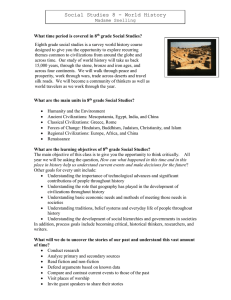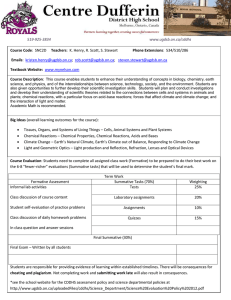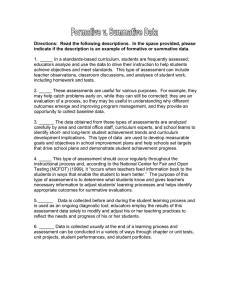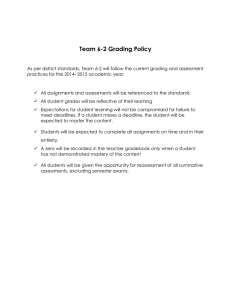7 Grade Social Studies 20 and 21
advertisement
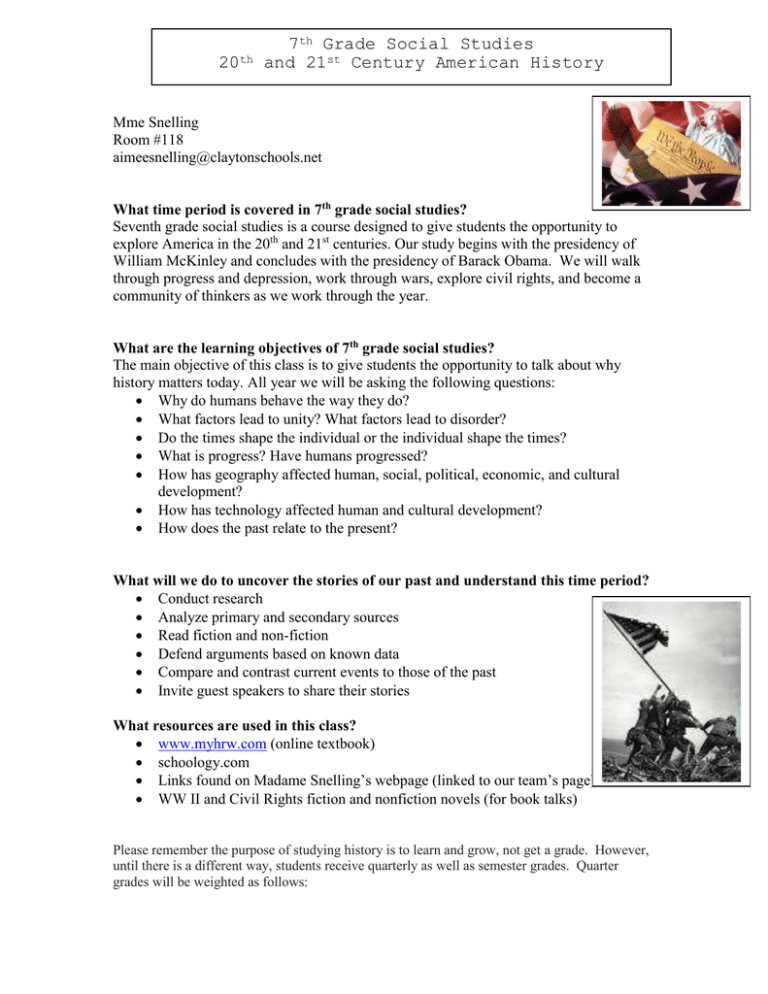
20th 7th Grade Social Studies and 21st Century American History Mme Snelling Room #118 aimeesnelling@claytonschools.net What time period is covered in 7th grade social studies? Seventh grade social studies is a course designed to give students the opportunity to explore America in the 20th and 21st centuries. Our study begins with the presidency of William McKinley and concludes with the presidency of Barack Obama. We will walk through progress and depression, work through wars, explore civil rights, and become a community of thinkers as we work through the year. What are the learning objectives of 7th grade social studies? The main objective of this class is to give students the opportunity to talk about why history matters today. All year we will be asking the following questions: Why do humans behave the way they do? What factors lead to unity? What factors lead to disorder? Do the times shape the individual or the individual shape the times? What is progress? Have humans progressed? How has geography affected human, social, political, economic, and cultural development? How has technology affected human and cultural development? How does the past relate to the present? What will we do to uncover the stories of our past and understand this time period? Conduct research Analyze primary and secondary sources Read fiction and non-fiction Defend arguments based on known data Compare and contrast current events to those of the past Invite guest speakers to share their stories What resources are used in this class? www.myhrw.com (online textbook) schoology.com Links found on Madame Snelling’s webpage (linked to our team’s page) WW II and Civil Rights fiction and nonfiction novels (for book talks) Please remember the purpose of studying history is to learn and grow, not get a grade. However, until there is a different way, students receive quarterly as well as semester grades. Quarter grades will be weighted as follows: Preparation and Practice 10% These assignments will typically receive completion credit. These assignments serve as skill practice, preparation for class discussion, and/or preparation of a piece of work for peer or teacher feedback. Communication (Written, Verbal, etc.) 25% These assignments will be evaluated using the ESMN grade scale with relation to the learning standard/target. These assignments frequently serve also as a place for teachers to formatively assess content standards in addition to assessing skills. Formative Assessment 0% Formative assessments are used in the learning process. When a skill or content standard is newly introduced, being practiced, or receiving teacher feedback, a formative assessment grade using the ESMN scale will be used to communicate student progress. For example, a pre-test grade would be placed in this category. Summative Assessment 65% Summative assessments measure learning that has already taken place. After a skill or content standard has been introduced, practiced, and studied, a summative assessment will be given to allow students to demonstrate their understanding. These evaluations of learning will be graded using the ESMN scale. Examples of summative assessments include DBQ essays, unit tests and quizzes. This assignment falls in the “communication” category of your grade in social studies. Your grade will follow the ESMN scale. What does that mean? E: Exemplary (99-100%): You demonstrate a degree of knowing, understanding, and/or doing exemplary work as it relates to a standard/learning target. S: Standard Met (89%): You demonstrate that you know, understand, and/or can do what is expected as it relates to a standard/learning target. M: Making Progress (79%): You demonstrate that you are making progress toward knowing, understanding, or being able to do what is expected based on the standards/learning targets. N: Not Yet Understood (69%): This standard/learning target is still something you need to spend time practicing and studying. If you aren’t sure how to make progress, please make sure you are asking questions in class and making time to see me for extra help if you need it. You are not a grade. You are in this class to learn about the stories of our past, to investigate the mysteries of the past, and to work to your greatest potential.
